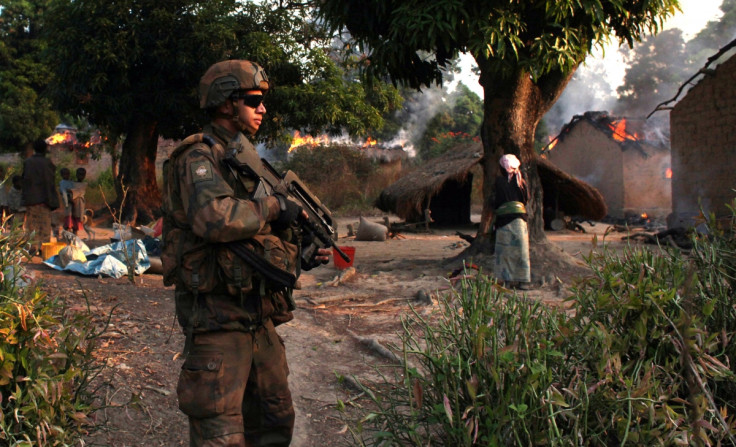Central African Republic: UN investigating six more cases of alleged sexual abuse by EU troops

The United Nations (UN) has found more alleged sexual-abuse cases by European troops against children in the conflict-ridden Central African Republic (CAR), the UN human-rights chief has said. Zeid Raad al-Hussein explained that at least six more cases have been discovered following recent investigations.
She added that five girls and one boy have claimed that their abusers were members of the EU's peacekeeping operation Eufor from Georgia, France and another unnamed European country, with troops having been deployed to the country after the eruption of civil war in 2013. The abuses allegedly took place near a camp for displaced people near Bangui Airport, AP has reported. Three of the girls said their abusers were members of the Georgian EU contingent, while another girl and the boy said they were abused by French 'Sangari' soldiers. The alleged abuses occurred in 2014 but came to light only recently, the UN added.
The latest reports of the alleged abuses came as UN human-rights official Anders Kompass, who has already exposed abuses committed by French troops in CAR, was cleared of any wrondoing. Allegations of sexual violence against children in CAR first emerged in 2014 when reports claimed that young boys, some of whom were orphans and displaced by the civil war, were forced into rape and sodomy by French UN peacekeepers in exchange for food and money. The allegations promted the resignation of the head of the UN mission, Babacar Gaye. Meanwhile, the UN said it would apply 'strong sanctions' against peacekeepers found guilty.
What caused the conflict in CAR
CAR descended into chaos in 2013 after former leader Francois Bozize was overthrown during a coup and replaced by Michel Djotodia. As a result of the political unrest, Muslim Seleka and Christian anti-Balaka militias engaged in tit-for-tat violence prompting Djotodia to resign in January 2014, as he was accused of being unable to halt the unrest. Due to the prolonged violence that often targets civilians, interim president Catherine Samba-Panza – deemed as politically neutral – postponed the presidential and parliamentary election, originally scheduled for October 2015, to December. Bozize tried to run, but his candidacy was rejected by the constitutional court.
A 10,000-strong UN force was deployed to CAR in 2014 while 2,000 French troops arrived in the country in 2013.
© Copyright IBTimes 2025. All rights reserved.






















